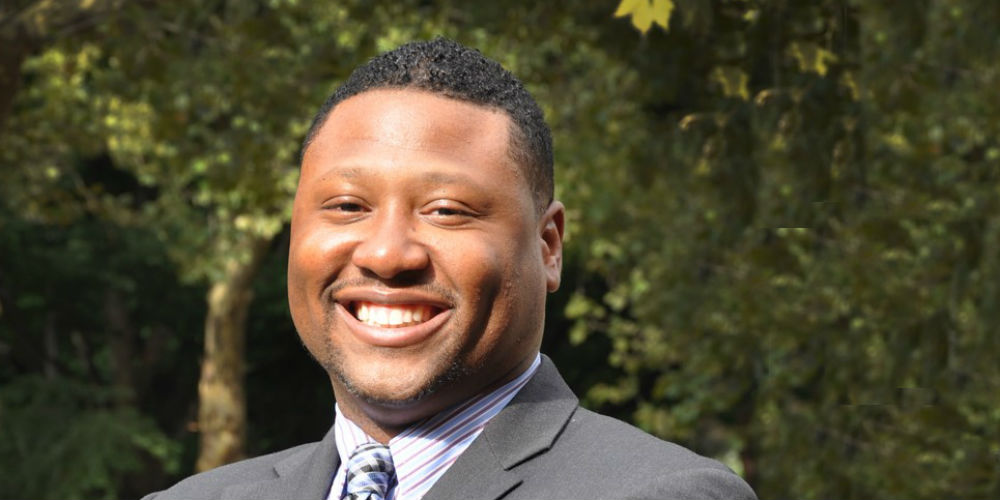Racism Kills Black People in Inconspicuous Ways, Says Rutgers–Camden Scholar

The racial reckoning in the United States following the police killing of George Floyd inspired Oscar Holmes IV to examine other less noticeable ways that racism kills Black people.
“I felt it was necessary to show the many other less conspicuous ways that racism kills Black people, so that more people can see themselves in this moment and learn how they might be contributing to racism, and in turn, also killing Black people,” says Holmes, a Rutgers University‒Camden associate professor of management and an expert in organizational behavior.
Holmes researches ways in which business leaders can improve productivity and employees’ well-being by fostering workplaces that are more inclusive.
In his article “Police Brutality and Four Other Ways Racism Kills Black People,” which appeared in Equality, Diversity and Inclusion: An International Journal, Holmes notes that America’s discomfort with addressing issues of race or racism causes Black people to suppress true emotions and impulses and attend to others’ needs and desires – survival tactics that have been passed down for generations. Holmes writes that Black people offer reassurance, swift forgiveness, and unequivocal redemption despite enduring the enormous pain of racist systems and actions.
Holmes adds, “Although the practicality of this tactic is understandable even today, as it was in our antebellum and Jim Crow societies, this form of racism is also killing us.”
Following the protests over the police killing of Floyd, many organizations, elected officials, and celebrities released statements and organized protest marches. These were forms of performative activism and allyship, says Holmes, who observes that many of these organizations and people remained silent in the face of previous systemic injustices against Black people. Holmes says some clues that performative activism and allyship might be occurring include a significant mismatch between enacted behaviors and espoused values, and an absence of a legitimate track record of previous activism or allyship.
Holmes says assigning Black people the responsibility for fixing racism is another way that racism kills them. Expecting Black people to pass legislation and secure broader opportunities for all people while reforming policies and practices are conspicuous examples of placing the burden of fixing racism on the shoulders of those suffering most directly from this societal scourge, Holmes explains in the article.
The Rutgers–Camden scholar says education, mentoring, or wealth are not “cures” for racism. While acknowledging that positive outcomes can result from quality education, effective mentoring, and wealth generation, Holmes writes, “it is a deleterious form of racism because it positions Black people’s experiences with racism as individualized acts that we can escape by employing individualized (or collective) efforts. In fact, a common trope people use to explain racism or White privilege is to juxtapose the life outcomes and opportunities a middle- to upper-class White kid who grows up in the suburbs has with a poor Black kid who grows up in the inner city.”
Holmes says this ideology makes it easy for people to pathologize Black culture and blame Black people for the racism that they experience. He says it casts Black people as poor, less educated, and less qualified than their White counterparts. In addition, he says that this belief ignores the fact that even poorer and less educated Whites fare better as a group than their wealthier and more educated Black counterparts.
Holmes does think there is hope for changes in race relations and in diversity, equity, and inclusion because of the Black Lives Matter movement and last year’s protests. “My belief is that the Biden administration will help us move forward,” says Holmes, “but the path will be fraught with some tough decisions and political fights.”


